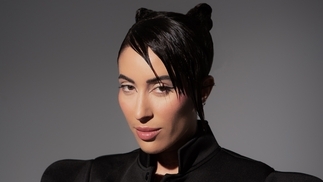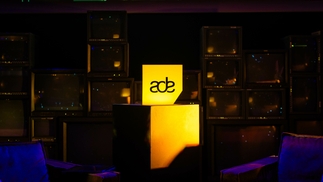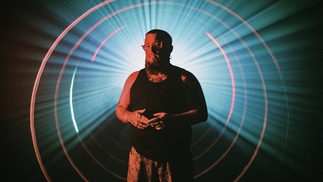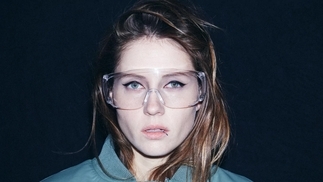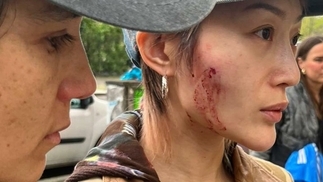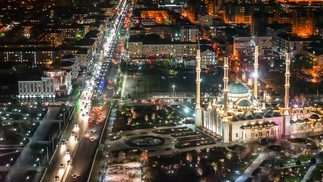The techno sound of Naples
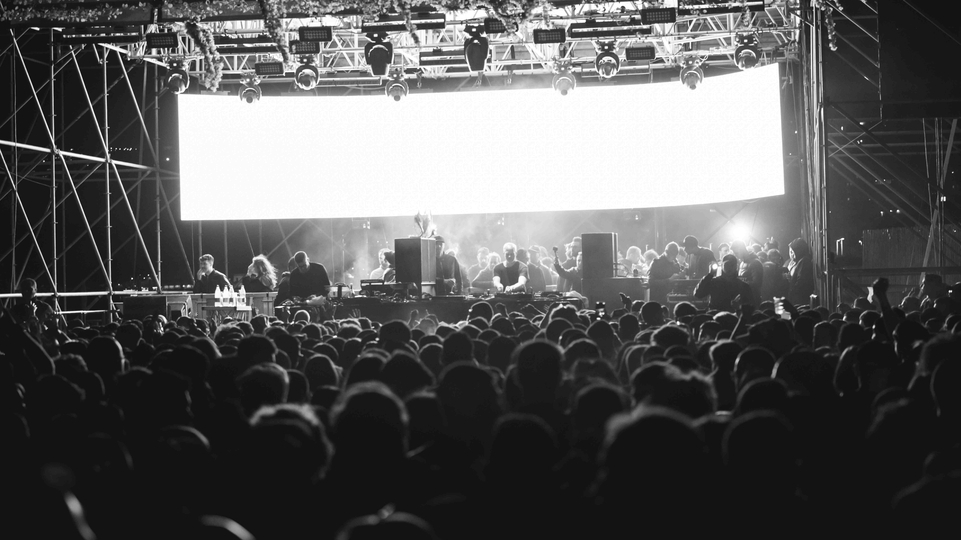
DJ Mag heads to the Italian birthplace of Marco Carola and Joseph Capriati to pick up the local thread, with Luigi Madonna and his crew
"For us it was... where everything started from. It was in the middle of mountains, so you have that view from the stage. The first time they did a party for two days, there were people with caravans, tents — it was that kind of rave.”
It’s a shame we can’t see what Luigi Madonna is talking about. Who’s not up for heading into the stunning countryside of Campania, just outside southern Italy’s biggest city, Naples, to spend 48 hours lost in music? Sadly, though, Old River Club, the venue in question, is no longer a viable option for this long-established dance music community, and their driving four-four beats.
Growing from its early, rough, ready and loose days into a more official (and organised) party-spot, the outdoor space closed amid concerns over capacity — at its peak, you could find around 10,000 heads on site. It’s now open again, sporadically, but doused fires are hard to reignite.
“I preferred it when it was less people — 2,000 maybe. There was room for everyone,” Madonna continues. “Around the year 2000, the movement was so big, so many artists came to play there; Jeff Mills, Richie Hawtin. The minimal thing came out of that era. People got tired of the strong techno, because it was really fast and really different. Not for everyone. But whatever was played, it was always Neapolitan style — around that time, you realised there was this Napoli style.”
A day or so earlier, we got our taste of what he means. Madonna’s set at long-standing event series International Talent saw thousands savage the dancefloor at Arenile di Bagnoli. The music was solid but groove-laden, pared back but percussive, and made for the big stage. The address itself screams Naples; the concrete entrance’s high walls hiding decrepit factories across the street, a palm-fringed, beachside interior overlooking a postcard bay and the marry-me-now island of Procida.
“Everything that is around you influences you. Think about Berlin — it’s very dark, the city is quite like that. In Napoli, we have sun, sea... it’s more Latin. So maybe we are bringing that through,” Madonna says, explaining how the lush-yet-gritty landscape might impact the city’s aural output. He seems to have forgotten industrial might.
There are plenty of examples to test his theory. Naples has had the greatest impact on techno of any Italian metropolis: a town that created the likes of Marco Carola and Joseph Capriati must have something in the water.
“For me, Naples is a different style to any other city,” says Madonna’s friend, DJ and producer Markantonio. “In the beginning it was strange, because what was here was much better known outside Italy than in our own country. Most of the clubs in the country were just playing house music, and other styles apart from techno. We were playing a lot in Spain or Berlin, or Holland with Awakenings, so our movement was strong. Also, many Neapolitans were living in London or Amsterdam. I remember Ellen Allien coming here from Berlin, she was a friend of Rino [Cerrone]; he then went to play the Love Parade in Berlin. So things like this were connecting Naples more to places outside Italy.”
We’re told Neapolitans have a phrase — wherever you go, there is always Coca-Cola, Martini and someone from Naples. As much as the port brings in, it puts out, leading to a roaming band of dedicated local disciples at any date in the world, that books someone from the city. But a trade deficit has also emerged. The demise of clubs such as Old River and the 5,000-capacity indoor Metropolis betray a wider struggle in the dance community. The authorities lack interest and do little to facilitate events, in some cases actively shuttering things, opinions of rave centred on drugs and little else. We are told of one incident when a festival was closed down on the day, without notice or rationale. The scene still has spaces to use, but it’s frustrated. Many of the city’s big techno acts have exported themselves to overcome obstacles.
Madonna chose Amsterdam for nightlife, quality of life and Schipol Airport’s enviable global connections. Given how often he’s in the departures lounge for worldwide shows, the plan has worked. He’s still in Naples regularly to see friends and family — a number we meet at Michelin-listed 68-year-old pizzeria Concettina Ai Tre San — but relocation felt necessary. “You have to move to really create the biggest opportunities, and that’s not nice to say. Maybe I’ll come back one day, I don’t know,” he says.
Markantonio, meanwhile, is still in Naples’ charmingly crumbling centre. Like Madonna, he’s proud of the city and its identity, but agrees there are issues. “Everything we do here is 10 times more difficult than in Holland or Germany or wherever.” Genny Mosca also understands. After two decades in the Neapolitan promotions game, while running a label and artist agency, he’s seen all sides of the dance industry.
“Naples is a very difficult place to organise events because the authorities are not supporting this kind of industry,” he says, before pondering on how this might improve. “We need more communication with the authorities, this is what we are missing at the moment. For me, it’s all about the political support, and we do not have this. If you look at singers and how much support they receive, it’s totally different.”
What doesn’t kill you makes you stronger, though. Sort of. After an evening amid the black-teed local heads, what Naples lacks in available addresses and support it makes up for with passion and heat at events. “It’s always amazing playing here, and it was the same when I was living here,” says Madonna, pausing to greet his bald-shaven, leather jacket-clad fashionista father — a fixture in the booth for all of yesterday’s set. “The crowd, the power and the energy. I always expect that.
